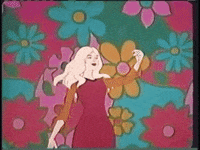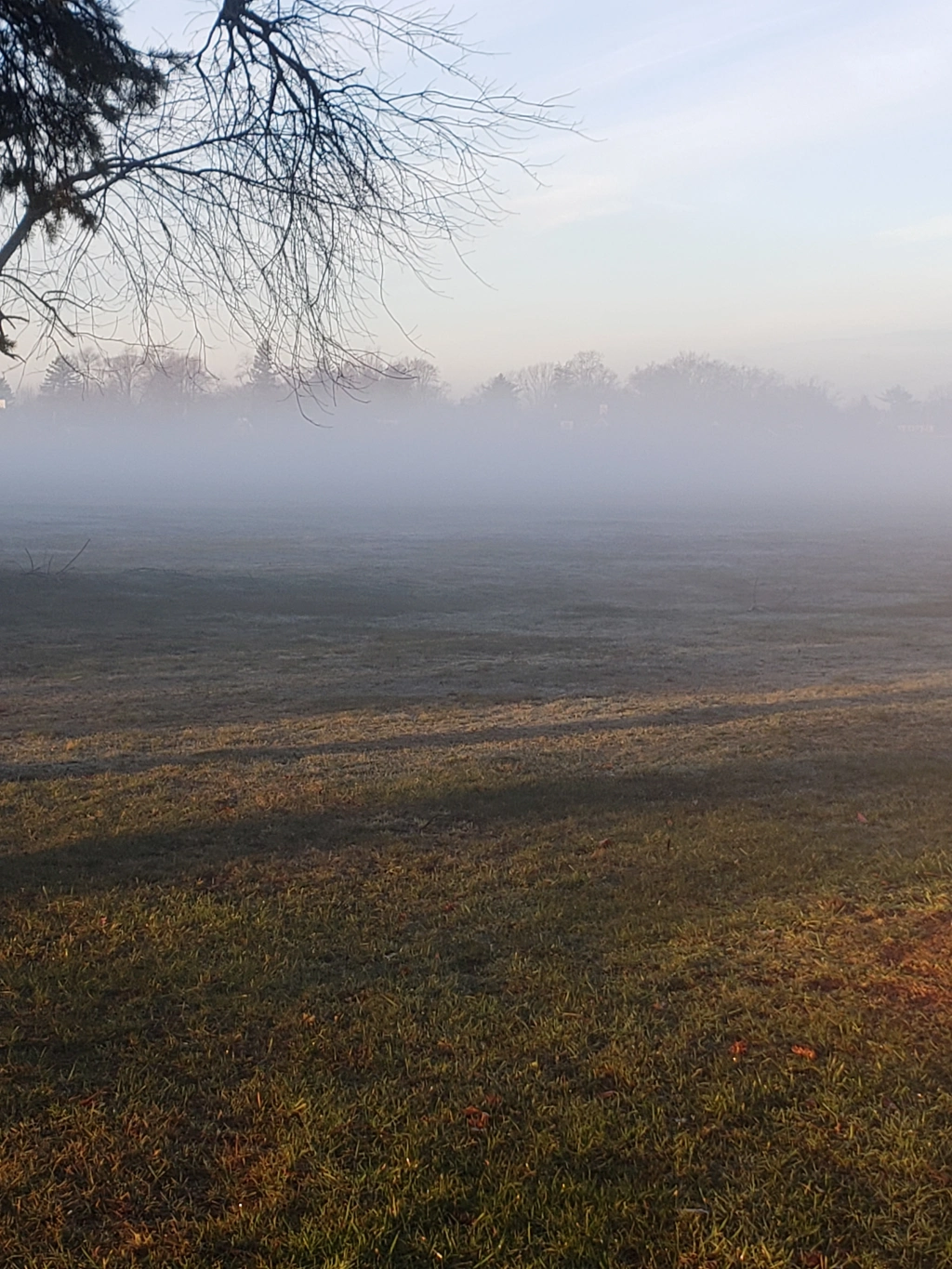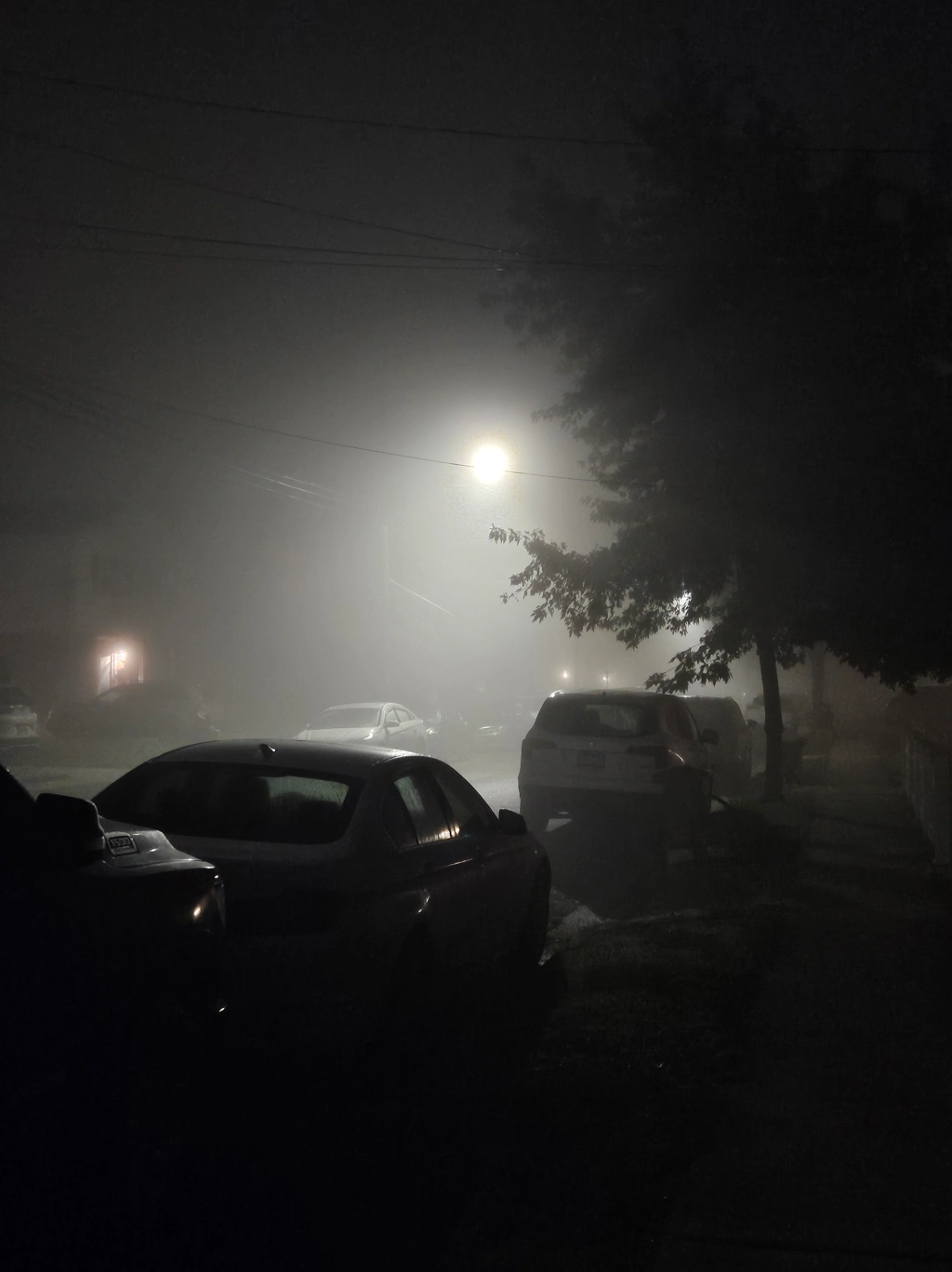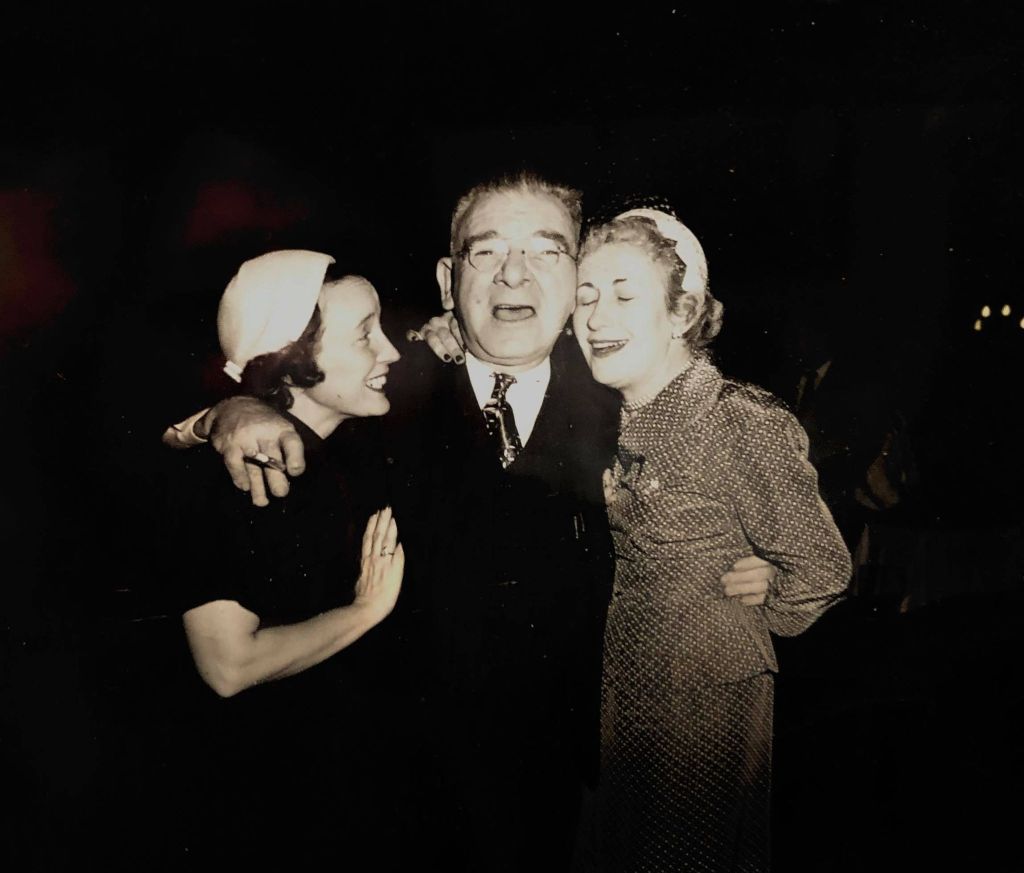
Ginger Hendrix has spent 25 years writing poetry—40 years if you count the poems that rhymed. Her work has appeared in Agni, The Journal, and Crab Orchard Review. Prior to this memoir, she wrote Time to Make: Throw Yourself at Your Creative Life. She lives on the central coast of California with her wife and their five children, just about 20 miles from the church where she grew up.
Her memoir, Church Girl Is A Gay, begins with the end. It’s just the way her life is, well—was. Until it isn’t. Here is how Hendrix writes about it:
“The first thing I did when I came out to myself: I went and bought all new underwear. They needed to be more comfortable. I needed to not have to wear lady underwear anymore. Not that mine were covered in lace or anything, but there is this straight lady thing of buying the smallest size you can squeeze your ever-changing ass into. And there’s always a size you hope to never have to buy. And I was over it.”
The memoir captures the end of one way of living, the beginning of new one and the muddled middle as Ginger comes out friends and family while figuring out a new direction in her life. Hendrix captures this period in snippets, stray observations and small scenes, which build into mosaic representation of her experience. Objects take on new meaning, people take new positions in her life, and she is guided by God and by Lisa, her therapist.
In this interview, we discussed potential other titles and how she settled on the current one, writing the book as its events happened and other important media she consumed during this period, outside of The Fosters and The L Word.
One of the things that drew my eye to your book was the title. It’s very blunt as it’s not “Is Gay” but “Is A Gay.” How did the title come to be?
It was called Cigarette Prayers for a long time. You know, I’ve wanted to call many, many things that I’ve written before, poetry collections and such, this, Church Girl.
I think, as I wrote and wrote, one of the things that struck me is that, if you read through the book, it’s not a question I’ve asked of myself. Unless you’re a church kid, you just will think I’m lying. Really, what emerged in my reflection was: gay was a separate group of people that kind of didn’t exist when I grew up. In other words, there’s people who do bad things with people with the same gender. Sort of like there’s alcoholics and they need to stay away from alcohol, there’s like people who like their same gender, and so they need to stay away from them. It’s a bad activity. But the idea of a human person arriving as they are and being gay was not a construct or a reality in my life. And so, for me a gay. That was really my revelation was like, “Oh my God. What? What if this is just this who I am?” And that was so freeing for me. So that’s where A Gay came from. Plus, I think it sounds cool.
This memoir, to make an understatement, captures a major shift in your life. What made you not just want to write about your experience, but to write a book—to make art out of it? Because that seems like it’s a different step than just like writing about it for yourself.
I started writing bad writing poetry when I was about 12 years old. And it took me a lot of years to figure out that I’m actually a writer. It took me years and years to say I was a poet. But I think the truth is when you when you arrive to the world as a writer, you just do that stay sane. And for me, during that time—I always write when I feel kind of overtaken by anything.
But I think for this one, I just was in this kind of energy space where what I was writing was coming out like big prose poems essentially. I didn’t say, “I’m gonna write a book!” I wrote every day because I had to write. And as that emerged, I thought, maybe this is looking like it’s going turn into a book someday.
I was also aware that there was no book like it. I went Googling, you know, memoir about a gay lady who went to church. I’m trying to find, literally, gay transition mid-life. Nothing. There’s nothing out there. And so, some part of my soul knew, I’m writing the book that I wish I could read right now.
So, I was really capturing it just every individual day. The sections now have titles and such, but it was originally just dated, one entry at a time. I didn’t add anything to the book. I kind of dehydrated it to make it better. But all the language there is what happened to me. It’s what emerged as I was going through it all and, obviously, I had a lot of energy spinning inside during that time so, for me, it cranked out some good language.

Church Girl Is A Gay is split into three sections of prose poems or short essays, some a few paragraphs and some a few pages. I appreciated the essays both as singular pieces of writing and how they layered to also build something bigger. How did you figure out the structure with the end, middle and beginning come about? You mentioned that some of it just came as you were writing, but when you’re doing the 2nd draft of it, it has the structure—
2nd draft? That’s funny. You mean more like the 16th?
It’s a hilarious thing because I actually edited this book over about five years. And it started as dated entries. I didn’t add anything to the book, I would say I scrambled a little bit of it because I was really trying to make it build, work in a story arc. But I didn’t set out to write it that way. But because I was writing it every day, it was a story. As it turns out, I was in a story and I wrote the story down.
I think what I tried to add to it, in the beginning, was the three sections to try to grab some moment that’s the pivot moment there where the end of what has always been has really, truly landed and now there’s this new thing starting but I have no idea what it is. Right? The moment. And it’s really an emotional moment, it’s not, “And then this chick waved to me in a bar.” It wasn’t that for that moment, it was an emotional storyline, the arc between End and Middle. And then between Middle and Beginning, I would say it was the same, I probably would say it’s all emotional arc.
The only thing that’s truly like an event that causes it’s the event that causes the end of the Beginning. The last moments of the book, that is when I met my wife. The girl the coffee shop is my wife now. And as soon as I met her, I fell in love with her within about 72 hours. And I just had a really strong sense that the next chapter of my life is our story, I don’t need to share it with anybody, so I just stopped writing. Then later on, I went back and I wrote the prologue and I wrote the epilogue sometime later.
It really was just a matter of kind of renaming and if I’m shifting anything, it was just trying to help that arc make more sense. But I was really fortunate to have a lot of goods, alive material, that I then just teased and teased. For anybody’s who’s writing, you know that knowing when you’re finished is an impossible thing entirely. I think it finishes when finally somebody says, “Let me have it.” If I had it in my hand still, I’d probably still be tinkering with it. I was fortunate enough to have this university press, Stephen F. Austin say yes. So, I said, “Great, here you go.” And I was really pleased with how it landed. It took a year to go through the publication process. So, by the time it got back to me, and I looked at it again, I thought, “Oh, I don’t know if I can read this again.” But I forced myself and I’m actually really pleased with it, I like where it landed and I like the sense of life that has in it, the way the pieces do work together.
I appreciate you saying that you recognize it as prose poems. That didn’t really come to me until later. And then I thought, “Well, duh, I’m not a nonfiction writer, I’m a poet,” so, it’s not surprising that it read that way. I love that you phrased it that way: the pieces live, not just the whole.
It’s funny that you mentioned that you’re a poet, because what I loved about the writing is, you capture the poetry of the everyday, but you’re not like super precious about it, if that makes any sense.
That’s a very high compliment.
So, I was wondering, was it kind of a struggle to like write prose? Or were you not worried about genre as you’re writing? What was the process?
I wasn’t thinking about it at all. I wrote it the way that I would write a first draft, probably for any poem, although with a level of speed, that I’m never able to take to my poetry. It was really freeing, I went at it with the same energy I would for any kind of writing for myself, but with some sense that I was creating pieces that hung together, I know, as I wrote, because they just all came out that way. I was aware on some level that’s what I was doing. But I was also just saving my own life. Dual purpose.
Did you have an imagined audience? Who do you most want to have read this book?
Well, I’ll start with saying, I’m the most surprised that younger folks at Stephen F. Austin liked it and grabbed it, that made me really happy.
I think my heart is that somebody else would find the book when they went Googling for it that I didn’t find. I do think that if you go to the big grand library and [to] evangelical books about homosexuals, then what you’ll find is just like rows and rows and rows about the idea and the issue, as it’s referred to, of, “What does God think?” and you just don’t find very many stories. I mean, if you imagine yourself with the same set of bookshelves going back on the right-hand side and there’s just one sample shelf with literally less than a dozen titles on it. It’s an indicator of where the church is because the church is saying this is an idea we have to fix. It’s not, this is a group of people who we want to know.
So, I am really, really happy to be on the shelf of stories. I do think that I want to find the people who need the story. I suspect some of them are like me. If you imagine, just culturally, what’s possible now, even in the last six years—less than the last 10, the way that as a culture we talk about being gay and trans and being whatever is your special queer list, we just have our language for it. And I think plenty of folks my age, over 30, cough—No, I’m 55. I don’t have a problem telling you that—further on in life, to now have the chance to say, “Wait a minute,” and to stop and reflect. I just know it’s not only me. It’s not just all the teenagers and Ginger, there’s some other folks deep into their existing life, asking hard questions.
As someone is also writing about how media informed their queer life, I loved reading “Binge Watching The Fosters” where you describe the show as: “…mid-life lesbian porn—all those freshly chopped salads mixed with kitchen kisses, the struggling teenagers growing in their emotional intelligence as they fuck up with drugs and sex and chores, all five of them well-fed and working out their conflicts with two women who are patient and real whose craftsmen style home I want to live in with those unbelievably gorgeous solid wood doors.”
What other media was formative to your lesbian life or in this time period?
I don’t know if this answers that, but I was so tied to music during that time and I really had a set of playlists going through. I almost inserted soundtrack lists in each of those sections, because I had such specific songs for me that were connected to each of those sections and that I make mention of them here and there. But a some of that stuff came out as I edited. There was a lot of really beautiful music and I just found myself coming across songs that spoke to me. I found a lot of beautiful songs like “Brand New Me,” by Alicia Keys.
For sure, I made a joke about not wanting to listen to Indigo Girls growing up because I just self-filtered that, self-edited my way away from anything gay. You know, I totally missed Ellen’s whole career, unfortunately. But I came across a couple of Indigo Girls songs which I did know and love in the 80s. And boy, they just hit me so differently. I think it was re-experiencing a lot of music, reflecting on the fact that I was always a sucker for the 70s love songs, always written to women. And to hear them again and you realize, “Oh, hilarious, this is just my lovelorn self that was just loving those melancholy songs.” I was a lovesick 14-year-old all the time and just not able to recognize that that’s what was going on in my heart for the people that were around me.

Alex J. Tunney (editor, he/him) is a writer somewhere in downstate New York. His writing has been published in the Lambda Literary Review, The Rumpus, Fauxmoir, First Person Scholar, Complete Sentence, The Billfold and The Inquisitive Eater. You can keep up with them on Instagram at @axelturner.




